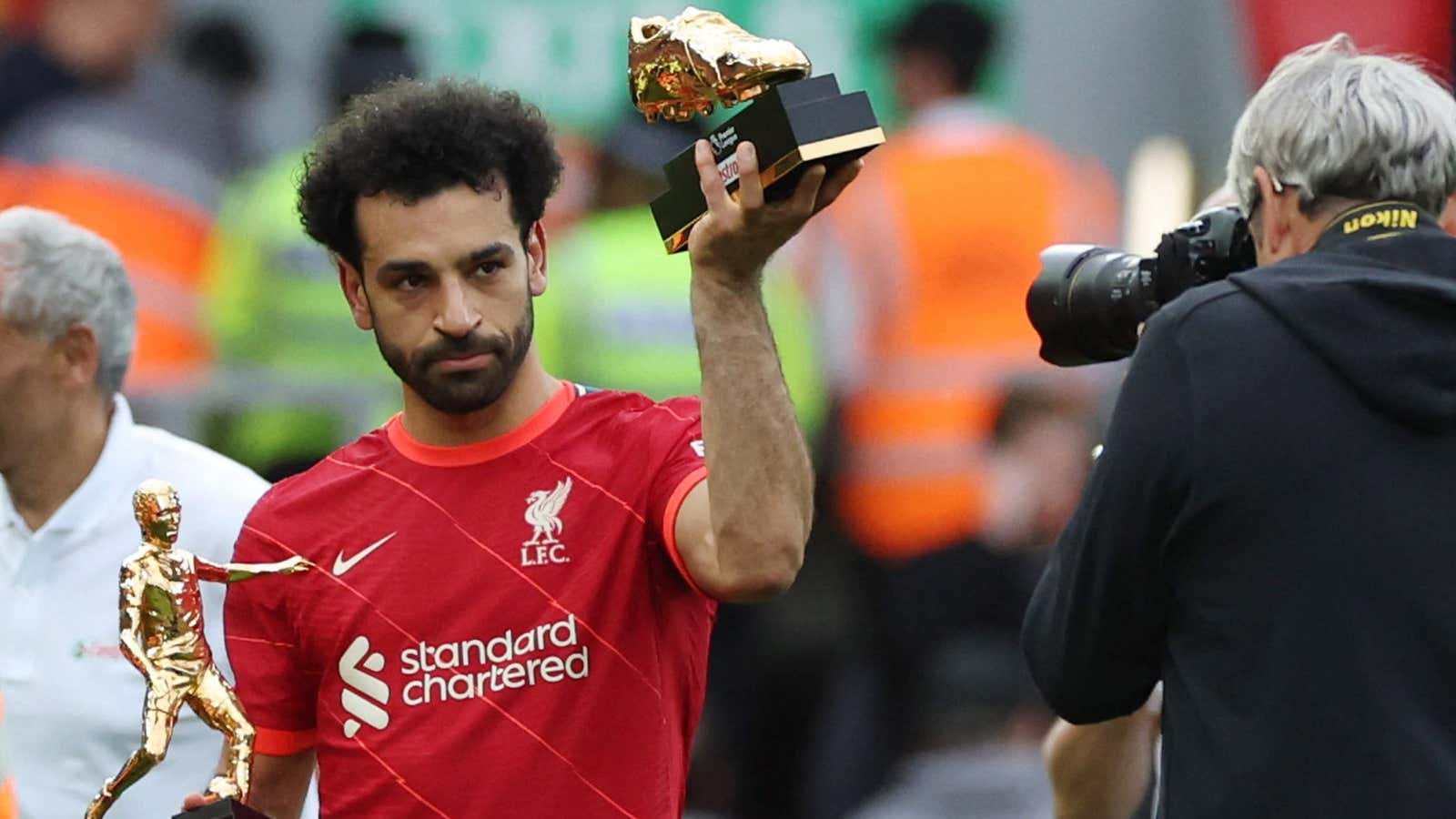Mohamed Salah had another prolific season in the English Premier League. In the nine-month season that ended on Sunday May 22, Salah totaled 23 goals for Liverpool, taking his English career total to 120 in 193 games, an average of more than one goal every two games. No African player in Europe’s major soccer leagues (England, Spain, Germany, Italy, France, the Netherlands, Portugal, Belgium) scored as many as Salah. He also assisted more goals for his teammates than any other player in England.
The same day the season wrapped, Salah was awarded the golden boot (shared with Heung-min Son, of Tottenham Hotspurs), his third in the last five seasons. It’s strong evidence that he is one of the best soccer players in the league’s 30-year existence.
Salah is one of 46 African players in EPL and one of about 500 in European leagues, out of over 8,300 professional players.
But the Egyptian is somewhat exceptional in another way: Most high-scoring African players throughout Europe in the 2021-22 season are not from his part of the continent.
West African soccer stars are top scorers
Salah scored seven more goals than his Liverpool teammate Sadio Mané, the Senegalese player who has scored two crucial penalty kicks this year: one to win his country’s first ever Africa Cup of Nations title, and another to qualify for the FIFA World Cup in Qatar in November this year, at Egypt’s expense.
Mané was born and raised in west Africa, a sub-region that has produced Africa’s most renowned players, supposedly due to peculiar physical attributes but also a spread of soccer academies that attract European scouts. Past generations of soccer stars have included Abedi Pele (Ghana) and George Weah (the president of Liberia), Kanu Nwankwo (Nigeria) and Didier Drogba (Côte d’Ivoire); today’s class of leading soccer men are from west Africa, too.
This generation includes 23-year-old Victor Osimhen, the Nigerian striker who lit up the Italian Serie A with powerful runs and decisive finishes, scoring 14 goals in 26 appearances for Napoli. He was voted the best young player in the league, and is attracting transfer interest from clubs in England, especially London-based Arsenal.
Osimhen is joined in the African top scorers list by three other Nigerians playing across the first divisions in England, Germany, and Belgium. Two of Mané’s Senegalese teammates and two Guinean players are in the mix, too.
For African soccer fans, seeing players from their countries perform well abroad raises expectations for performance during national team competitions like the World Cup.
Liverpool’s African stars edge towards glory
As African players take on a bigger presence in European soccer, smaller nations outside of west Africa are producing their own stars. Faiz Selemani, from Comoros—which took part in the Africa Cup of Nations for the first time this year—scored 13 goals for his Belgian club this season.
But as the European soccer season rounds off with the Champions League final played in France on Saturday (May 28), African eyes will be on Salah and Mané. Their Liverpool team will face Spain’s Real Madrid in a repeat of the 2018 final, which Liverpool lost. Salah has declared the day as one for revenge, since he was injured the first time.
A Liverpool victory would be historic for Salah, Mané, and their African teammates Joel Matip (Cameroon), and Naby Keita (Guinea): They would join Geremi Njitap and Samuel Eto’o as the only African players to have won the Champions League twice. Eto’o holds the distinction of winning in consecutive years with different teams, in 2009 and 2010 with Barcelona and Inter Milan respectively. With each new record, soccer becomes a more global game where excellence is just as distributed as talent.
